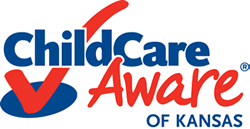UPDATED February 16, 2016
Child Care Aware® of America has posted its comments to the Child Care and Development Fund Notice of Proposed Rulemaking. We encourage you to review our comments and sign on in support of them. You may add your signature here, and we will be accepting them until 12:00 PM this Friday, February 19.
On December 18, 2015, the Administration for Children and Families (ACF) published a proposed rule making with regard to implementation of the Child Care and Development Block Grant (CCDBG) Reauthorization of 2014.
As a follow up to the passage of the 2014 law, this proposed rule provides guidance to states on its implementation to assist low-income families in gaining access to high quality, affordable care. The major provisions of this rule making include meeting the health and safety needs of children in child care; helping parents make informed choices and access on care and child development; providing equal access to quality care for poor children; and, enhancing the quality of care in the early childhood workforce.
Meeting Health and Safety Needs
This proposed rule provides detail on the health and safety standards established in the new law, including health and safety training, comprehensive background checks, and monitoring. The law requires providers receiving CCDF funds (including those that are license-exempt) to be monitored, at least annually, to determine whether health and safety practices and standards are being followed in the child care setting, including a pre-licensure visit for licensed providers. Regular monitoring of child care settings is necessary to ensure compliance with appropriate standards that protect the health and safety of children.
It requires states to establish standards in ten topic areas related to health and safety, and maintain records of parental complaints about child care. In the rule making, ACF proposes requiring states to establish a hotline for complaints, and report serious injuries or deaths that occur in child care settings.
Helping Parents Make Informed Choices and Access Information to Support Child Development
The 2014 CCDBB law expanded requirements regarding consumer education options for parents receiving CCDF assistance, child care providers, and the general public. The rule making proposes that information on policies and procedures licensed child care providers, background checks, and monitoring of providers be kept on a single website that’s easy for families to navigate and provides access to parents who speak languages other than English, and be user-friendly to people with disabilities.
In addition, the rule making proposes that all monitoring reports be kept on a website for five years, and that a monitoring and inspection report must be accompanied by a plain language summary that easy for parents to read through.
The rule making also directs states to provide child care information in multiple languages and alternative formats.
Providing Equal Access to High Quality Child Care for Poor Children
The proposed rule making requires a set of policies intended to stabilize a family’s access to child care assistance, and help stabilize their employment or education and child care arrangement. This is seen as having the potential to stabilize the revenue of child care providers who receive CCDF funds, as they would experience more predictable, reliable, and timely payments for services.
The rule making also proposes to reduce reporting requirements for families that can result in them unduly losing their assistance, and make it easier for states to align CCDF policies with other programs, such as SNAP, Medicaid, CHIP, Early Head Start, and Head Start.
In this proposed rule, ACF outlines procedures for states to follow that ensure all children who receive CCDBG-funded child care are eligible for a minimum of 12 months of assistance regardless of temporary changes in parents’ employment or participation in education or training, as long as family income does not exceed the maximum federal eligibility level.
It also requires states to take into consideration a child’s development and learning to promote the continuity of care, offer increased flexibility for determining eligibility of vulnerable children, and clarify that states are not required to restrict a child’s care to the hours of a parent’s work or education schedules.
Enhancing the Quality of Child Care and the Early Childhood Workforce
The 2014 CCDBG law increases the share of CCDF funds directed towards quality improvement activities, authorizes a new set-aside for infant-toddler care, and drives investments towards increasing the supply of high quality care for infant, toddlers, children with special needs, children experiencing homelessness, and other vulnerable populations including children in need of nontraditional hour care and children in poor communities.
It also requires states to submit an annual report on quality expenditures, including measures created by the Lead Agency to evaluate progress on quality improvement. In addition, the law increases quality through more robust program standards, including training and professional development standards for caregivers, teachers, and directors to help those working with children promote their social, emotional, physical, and cognitive development.
The proposed rule addresses the law’s training requirements by proposing that child care caregivers, teachers, and directors of CCDF providers receive training prior to caring for children, or during an orientation period, and receive this training on an annual basis. In addition, ACF proposes that training include the 10 basic health and safety topics (as defined under the law), and recognize and report child abuse and/or neglect.
Under this heading, states must also provide professional development for caregivers, teachers, and directors of CCDF providers. The rule proposes six key components of a professional development framework:
- Core Knowledge and Competencies
- Career Pathways
- Advisory Structures
- Articulation
- Workforce Information
- Financing
Flexibility for Native American Tribes
The proposed rule making outlines measures for increased flexibility for Native American tribes while balancing the goals of CCDF of promoting a family’s financial stability and fostering health child development.
ACF breaks down the proposed rule into numerous categories, including:
- Goals, Purposes
- General Application Procedures
- Eligibility for Services
- Program Operations (Child Care Services) Parental Rights and Responsibilities
- Program Operations (Child Care Services) Lead Agency and Provider Requirements
- Use of Child Care and Development Funds
- Financial Management
- Program Reporting Requirements
- Indian Tribes
- Monitoring, Non-Compliance, and Complaints
- Error Rate Reporting
ACF is accepting comments through February 22, 2016. Once the comments period closes, ACF will publish a final rule which will become effective 60 days afterwards. ACF anticipates that the process will be completed by the Summer of 2016.






